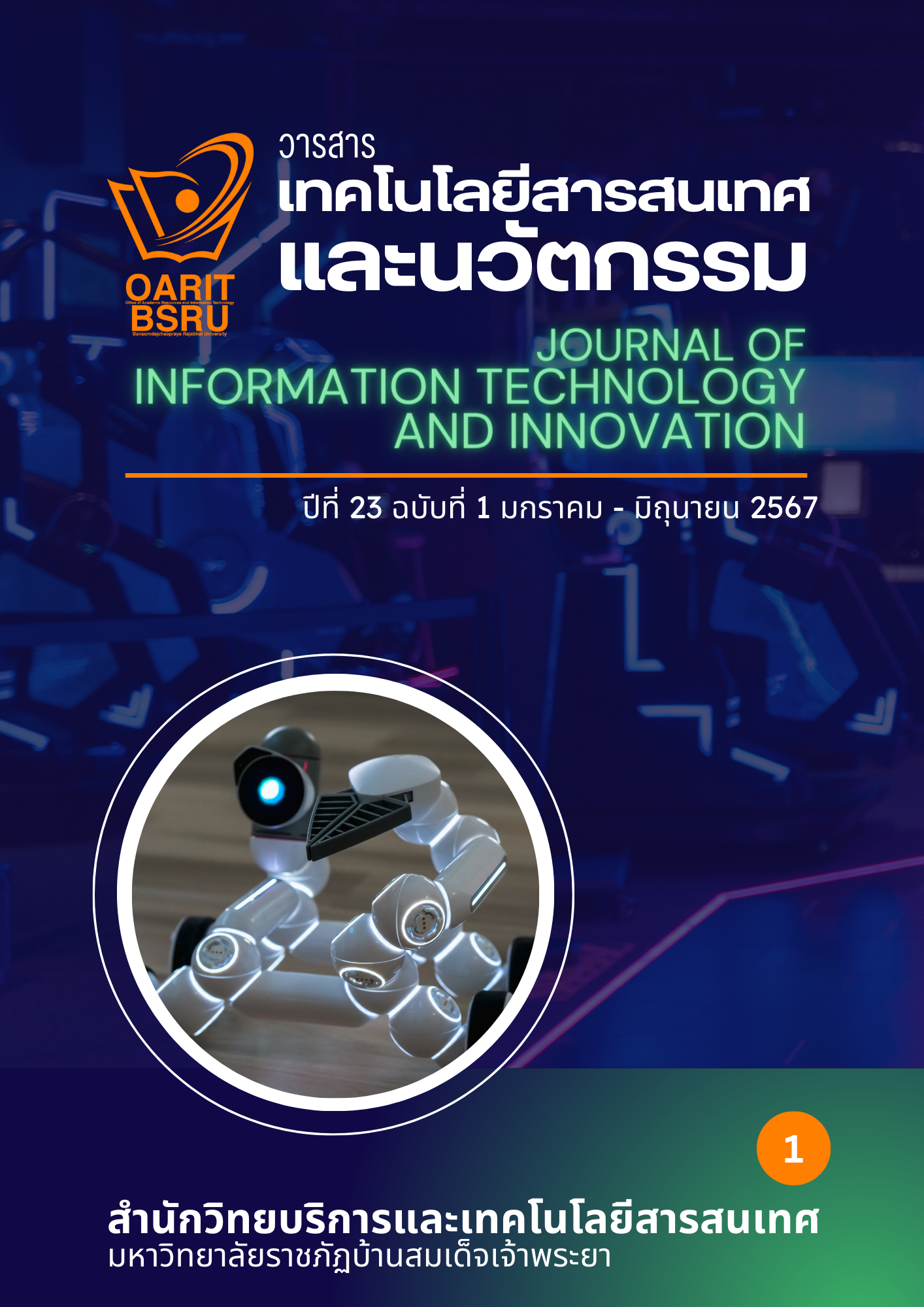Knowledge Management on Developing Participatory Community Kitchen Learning Resources, Strengthening Food Security, Developing the Grassroots Economy and Villagers' Way of Self-Reliance
Keywords:
Knowledge Management, Development of learning resources, Food security, Grassroots economy, Local wisdomAbstract
The purposes of this research were: 1) to transfer the knowledge from the research on the participatory community kitchen learning development model to Ban Non-Khoi Community, Nong Phluang Sub-district, Chakkarat District, Nakhon Ratchasima Province. 2) Organize activities to promote knowledge and develop careers from the wisdom of local food and herbs to raise the grassroots economy; and 3) Develop a local curriculum on food wisdom and local herbs from community kitchen learning resources. The research methodology was participatory action research. A target group was purposefully selected and consented to participate in the research project. There are 2 target groups participating in the operation: 1) community leaders, village scholars, villagers in Ban Non-Khoi community, villagers in other communities, and those affected by the COVID-19 crisis, a total of 100 people; and 2) teachers and students at Wat Nong Phluang School, 63 people. A questionnaire was used to collect data and analyze the data with descriptive statistics.
The results showed that the participants were satisfied with their participation in knowledge-transfer activities. I received a career promotion as a plant and herb processing product in the community kitchen forest. There are six menus that are unique to the Non-Khoi community, including Indian gooseberry ice cream, Indian gooseberry chili sauce, crispy fried noodles, herbs, Crazy Snacks, herbal compress balls, and pickled shoots. To preserve local food and herb wisdom, generate extra income, and upgrade the grassroots economy. As for organizing activities, integrate local curriculum, food wisdom, and folk herbs. It can be linked to four learning subjects, including social studies, arts, careers and technology, and science at Wat Nong Phluang School. Participants were satisfied with the overall average of all activities at a high level.
References
กนิษฐา บุญประคอง และจุฑารัตน์ ศราวณะวงศ์. (2562). การจัดการความรู้สู่ชุมชนของโครงการศึกษาวิจัยและพัฒนาสิ่งแวดล้อมแหลมผักเบี้ยอันเนื่องมาจากพระราชดำริ. ว.บรรณศาสตร์มศว. 12(1), 1-16.
จิรัชฌา วิเชียรปัญญา, อรจรีย์ ณ ตะกั่วทุ่ง และ พร้อมภัค บึงบัว. (2563). การพัฒนาระบบการจัดการความรู้การวิจัยเพื่อการใช้ประโยชน์. ว.สมาคมนักวิจัย. 25(1), 532-549.
ชาย โพธิสิตา. (2554). ศาสตร์และศิลป์แห่งการวิจัยเชิงคุณภาพ (พิมพ์ครั้งที่ 6). อมรินทร์พริ้นติ้ง.
ณัฐกร เชื้อปุย. (2565). ตัวแบบกระบวนการจัดการความรู้ของวิสาหกิจชุมชน: กรณีศึกษาวิสาหกิจชุมชนเพาะปลูกบุกในเขตพื้นที่ภาคเหนือของประเทศไทย. [วิทยานิพนธ์การจัดการมหาบัณฑิต, มหาวิทยาลัยมหิดล].
บุษกร จันท์เทวนุมาส และสุวภัทร ทำสวน. (2564). รูปแบบการพัฒนาแหล่งเรียนรู้ครัวชุมชนแบบมีส่วนร่วมของบ้านโนนคอยตำบลหนองพลวง อำเภอจักราช จังหวัดนครราชสีมา (รายงานผลการวิจัย). มหาวิทยาลัยราชภัฏนครราชสีมา.
ผ่องพรรณ ตรัยมงคลกูล และสุภาพ ฉัตราภรณ์. (2555). การออกแบบการวิจัย (พิมพ์ครั้งที่ 7). มหาวิทยาลัยเกษตรศาสตร์.
พิณทกานต์ นิมมานุทย์และเพ็ญพะนอ พ่วงแพ. (2565). การพัฒนาหลักสูตรรายวิชาท้องถิ่นของเราด้วยวิธีการจัดการเรียนรู้โดยใช้ชุมชนเป็นฐานสําหรับนักเรียนชั้นมัธยมศึกษาปีที่ 1. ครุศาสตร์สาร. 16(1), น. 201-213. สืบค้น 8 ตุลาคม 2566. https://edujournal.bsru.ac.th/download-file/media/2379
สำนักเสริมสร้างความเข้มแข็งชุมชน. (2559). คู่มือการจัดการความรู้ของชุมชน. สำนักเสริมสร้างความเข้มแข็งชุมชนกรมการพัฒนาชุมชน.
อารยา ดาเกลี้ยง. (2565). การพัฒนาหลักสูตรเรื่อง อาหารถิ่นไทยวน ตำบลน้ำอ่าง จังหวัดอุตรดิตถ์สำหรับนักเรียนชั้นประถมศึกษาปีที่ 6. [วิทยานิพนธ์ครุศาสตรมหาบัณฑิต, มหาวิทยาลัยราชภัฏอุตรดิตถ์].
Downloads
Published
How to Cite
Issue
Section
License
Copyright (c) 2024 Journal of Information Technology and Innovation

This work is licensed under a Creative Commons Attribution-NonCommercial-NoDerivatives 4.0 International License.
บทความ ข้อความ ภาพประกอบ และตารางประกอบที่ลงพิมพ์ในวารสารเป็นความคิดเห็นส่วนตัวของผู้นิพนธ์ กองบรรณาธิการไม่จำเป็นต้องเห็นตามเสมอไป และไม่มีส่วนรับผิดชอบใดๆ ถือเป็นความรับผิดชอบของผู้นิพนธ์เพียงผู้เดียว






